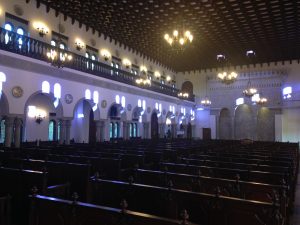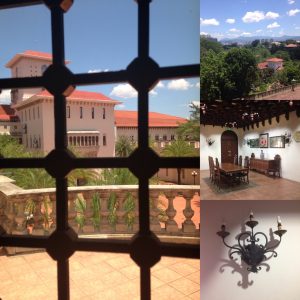Its been a busy start to 2018 professionally and domestically. My mother turned 90 a few weeks back and we celebrated with a surprise event that involved her extended family age range 2-92 who braved the snow in the north to assemble in Eastbourne on the 20th. Why you might understandably ask is that relevant. Here’s why:
Gatherings such as Mother’s 90th are usually characterised (like weddings) with people from both sides of a family / friends occupying different sides of the room with chance encounters at the food table or bar area. So I used a technique I often employ to kick off events followed by a new way to share “old” knowledge.:
- Introductions: I invited people to assemble at the back of the hall and to go and stand next to someone they didn’t know. At that point I then invited them to introduce themselves and say how they knew Mother. We did a couple of rounds and by the time Mother made her entrance there was a good feeling in the room and the 40 guests felt they knew more people than when they arrived.
-
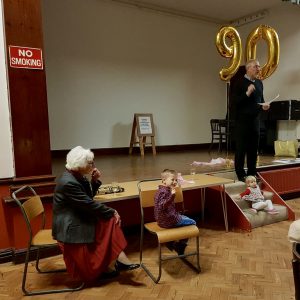
Paul reading out a question while Mother (and great grandchildren look on)
Post dinner (which was an Iranian Buffet – quite an adventure for the over 70’s) I ran a quiz on Mother’s life. I’ve wanted to try this with someone who is leaving or retiring from a business so this was a dry run. Comprising of 5 rounds of 6 questions the quiz focused on: events; places; dates; likes; and true or false.
- I encouraged Mother to give the answers and where she felt comfortable to do so to tell a few stories that amplified the answer.
- It worked perfectly: everyone learned something about Mother’s life and we also got her take on some of the events we had only heard others speak about.
- Does it have a relevance for Knowledge Capture and Sharing? You bet. Imagine “An audience with…” session with someone who isn’t naturally voluble. A quiz based on a set of grouped questions is a fun yet insightful way of getting an insight into events, decisions or history.
and finally
I am delighted to be able to announce I will be participating in Masterclasses in Lisboa and London (x2) with Martin White and Eric Hunter in the coming months. The first of these “Expertise Discovery 2018” will be in the week of April 23rd and is expected to cost £395.
Here’s a few details:
Expertise Discovery 2018 – optimizing access to corporate knowledge
One of the major challenges for organisations is being able to find out who knows what. This is important when assembling client-facing teams, when facing a new challenge, when revisiting previous decisions, when acquiring or merging with another organisation.
Self-completed personal profiles are recognized as having relatively little value. Potentially the range of expertise discovery applications that are now available should solve the problem.
But do these IT solutions deliver?
This workshop will bring together consultants and practitioners to help you develop an expertise management strategy.
Attendance at Expertise Discovery 2018 will enable you to:
- Build a business case for investment in expertise discovery applications
- Assess the claims made by solution vendors
- Understand the respective roles of IT, HR and KM managers in expertise discovery
- Share experiences of specifying, testing and implementing these applications
- Appreciate the potential impact of AI and machine learning on expertise finding
The workshop will be led by Paul Corney and Martin White. Paul started working with expertise discovery applications in the 1990s and is a leading authority on knowledge management good practice. Martin White specializes in enterprise search implementation and has written a recent report on People and Expertise Search. Both have published acclaimed works.
Martin and I are excited about how this is shaping up – we already have reservations despite not yet naming the venue or making it available on line for bookings.
More on the other events in my next posting.


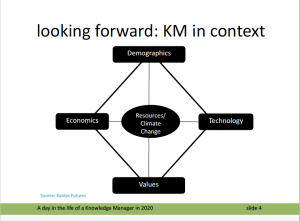 The backdrop:
The backdrop: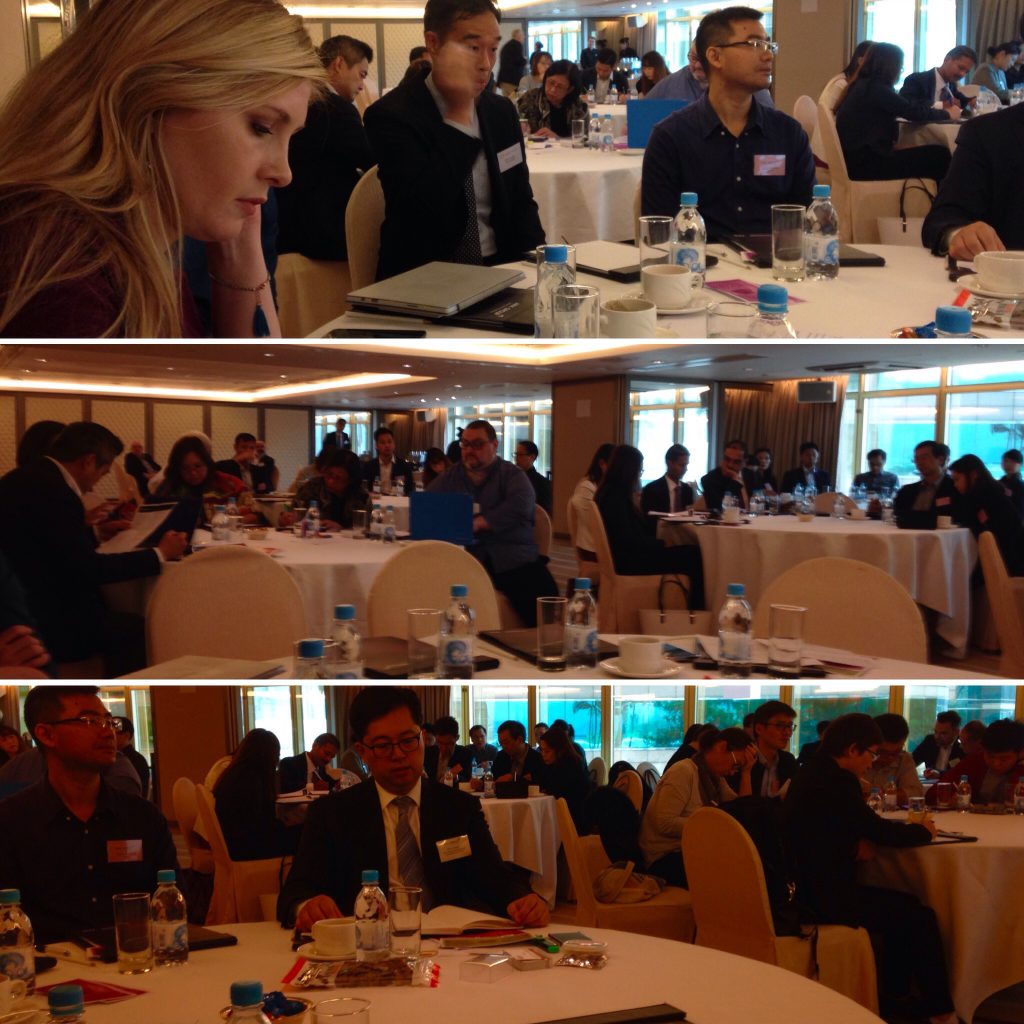
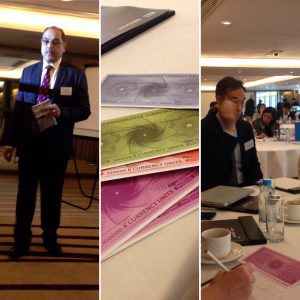

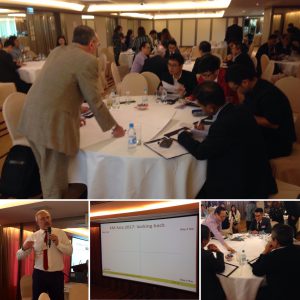
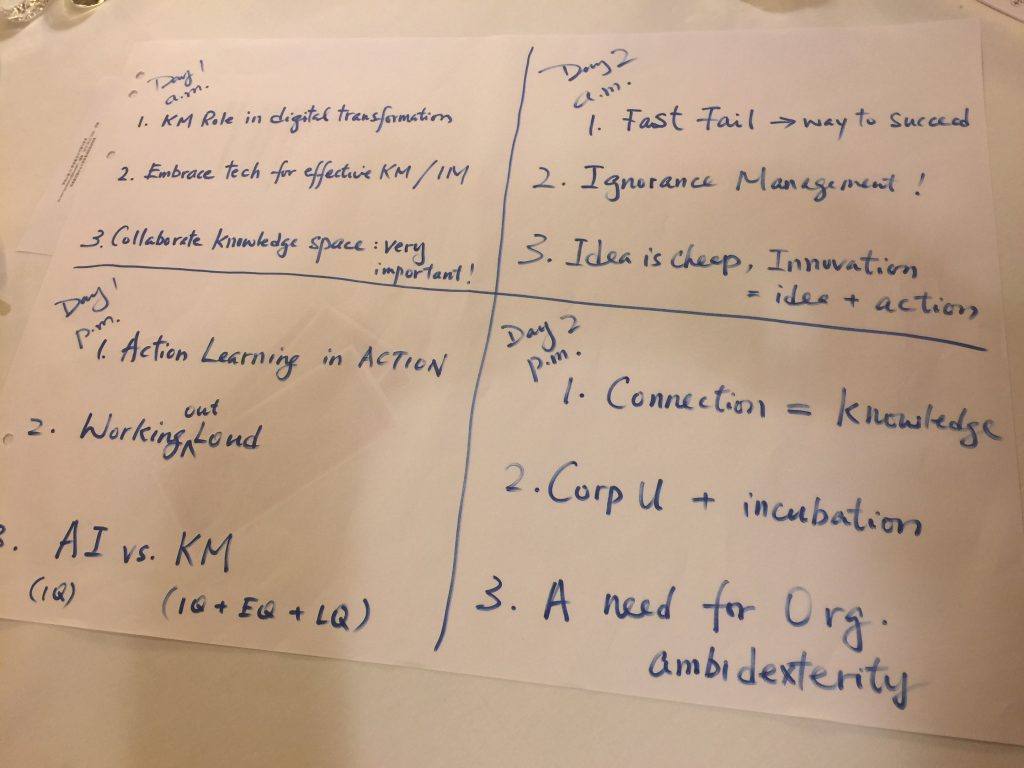


 Back to the title. It seems to me that although there are huge technological advances in the way individual, team, organisational and external knowledge, information and data is presented and we have access to, we are still struggling to absorb it all let alone keep up with the tools used. Despite technology giving us the ability to analyse data, information and knowledge to a higher level than ever before we are still hugely reliant on search to present the findings. Yet few seem to have cracked the ability to search across internal and external sources concurrently.
Back to the title. It seems to me that although there are huge technological advances in the way individual, team, organisational and external knowledge, information and data is presented and we have access to, we are still struggling to absorb it all let alone keep up with the tools used. Despite technology giving us the ability to analyse data, information and knowledge to a higher level than ever before we are still hugely reliant on search to present the findings. Yet few seem to have cracked the ability to search across internal and external sources concurrently.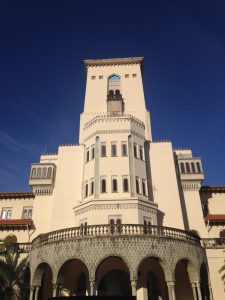
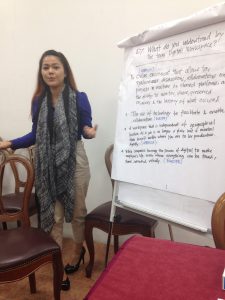
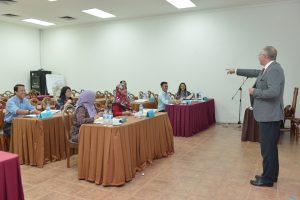
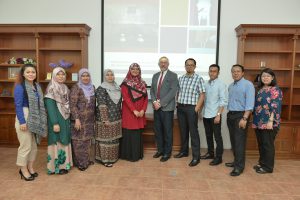
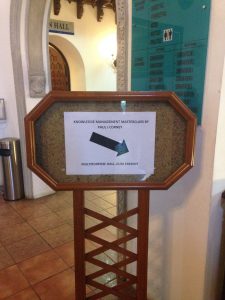 I am pleased to announce that at today’s Masterclass held at International Islamic University of Malaysia the delegates selected three ‘names’ from a metaphorical hat.
I am pleased to announce that at today’s Masterclass held at International Islamic University of Malaysia the delegates selected three ‘names’ from a metaphorical hat.